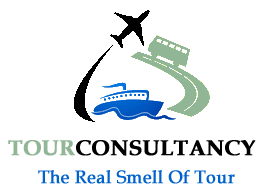
As worldwide travel begins opening back up, concerns regarding health safety are at an all-time high. Work or vacation may take you or your family to locations around the world that may not have the luxury of clean drinking water. A countless number of highly rated hotels could slip up and expose their guests to contaminated water. The illnesses contracted from this water can result in guests questioning their stay as they’ll have certainly contracted the bacteria from something as simple as a quick dip in the hotel pool, a stop in the sauna or a shower to cap off a busy day. This post and accompanying infographic will detail the ways in which you and your family can guarantee health safety while traveling.
In order to understand how to stay safe, it’s important to breakdown two of the most common diseases that travelers have the chance of coming into contact with during their hotel stays. These two diseases are known as Legionnaires’ Disease and Cryptosporidiosis.
Many people may remember Legionnaires’ as the disease associated with the widely publicized breakout in the late 1970’s at the American Legion Convention. This disease is caused by the Legionella bacteria, which can be pesky to track. This first breakout resulted in about 182 hotel guests becoming infected, with 29 of them later dying as a result of their infection. The bacteria responsible for killing these 29 people thrives in untreated water that goes on to be transmitted through the air. Meaning HVAC systems are a deadly catalyst for this bacteria to spread. In hotels, this issue is only exacerbated. It can be challenging as a guest of any hotel knowing that you’re dependent on the hotel to maintain these systems accordingly in order to ensure your safety and the safety of the other guests. During any of your travels, if your hotel does not have the proper systems to combat this bacteria, the safest thing for your family to do is evacuate and find a different hotel. Be wary of any time spent in places where there is communal water.
If it’s not Legionnaires, travelers will likely be met with the lesser known disease of Crypto. Again, this parasite known as cryptosporidium is a frequent visitor of untreated water. If you’re ever traveling and experience any of these symptoms: severe diarrhea, nausea or vomiting, it might not be food poisoning. It’s more than likely that it’s a result of cryptosporidium. This parasite is most commonly found in recreational water sources, meaning the safest way to avoid this parasite is limiting time spent in hotel pools, hot tubs or saunas.
It’s worth noting that these are only two of the major microscopic contaminants that have been known to infect frequent travelers. Plenty of others exist that should be avoided at all costs throughout any travel plans. In order to do so, be sure to avoid the drinking water in regions of the world that have low quality water. Instead, drink bottled water at every opportunity. For any first-time travelers traveling to a new destination, some investigation into the local water health situation is always suggested.
Chris Ebener is a mechanical engineer for LiquiTech, with a proven track record of diagnosing and remediating public water system issues of various sizes and complexity. Ebener is an expert on the biochemical makeup of facility water systems, system architecture and various methodologies of public drinking water treatment.
